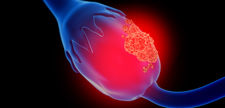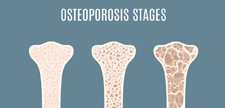
Menstrual health is an essential aspect of women's health that often goes underappreciated. For immigrant and refugee women in particular, managing menstrual health presents unique challenges. Cultural differences, language barriers and limited resources all contribute to these challenges.

Period poverty is the lack of accessibility or affordability of menstrual hygiene tools and educational material, such as sanitary products, washing facilities and waste management.

There are many common misconceptions about mammograms. Social media has served as a platform for the propagation of misinformation for many years. Though various organizations have tried to reduce misinformation on social media, it is essential to debunk the common misconceptions about screening mammograms.

Cancer is a condition in which cells within the body rapidly grow out of control. The type of cancer is determined by the site where it began, regardless of whether it has spread. There are six main types of female reproductive cancers including vulvar, vaginal, cervical, uterine, fallopian and ovarian. Ovarian cancer is the second most common reproductive cancer and the deadliest gynecological tumor in the Unites States.

Osteoporosis is a common disease that results in bone weakening and increased fracture risk. Its prevalence is higher in women than men and has continued to increase in women from 2007–2008 to 2017–2018 according to the CDC.

In the landscape of women's health, the Pap smear stands as a robust diagnostic tool, particularly vital in the prevention of cervical cancer. This article explores the complexities of Pap smears, highlighting their pivotal role in early detection and underscoring the nuanced influence of public policies in broadening accessibility to these screenings.

Husband. Visionary. Social entrepreneur. One of 2014 Time Magazine’s 100 Most Influential People in the World. Recipient of the Padma Shri (the fourth highest civilian award) from the government of India in 2016. Subject of the 2018 short film “Period. End of Sentence.” as well as the critically and commercially successful 2018 Bollywood film “Pad Man” starring Bollywood star Akshay Kumar.

Human papillomavirus (HPV) is the most prevalent sexually transmitted infection (STI) in the United States; approximately 14 million Americans become infected each year. Although HPV most often presents asymptomatically and clears without major clinical consequence, it can persist and progress to anogenital warts, precancers or even cancers of the cervix, other anogenital tract and oropharynx. In the United States, over 40,000 cancers are diagnosed each year in both men and women that are attributed to HPV infection. In women, HPV is thought to be linked to greater than 90% of cervical cancer cases and approximately 70% of vaginal and vulvar cancers.

Pregnant women are at risk of developing another type of depression called postpartum depression (PPD). The symptoms for postpartum depression and major depressive disorder are the same, with the exception that postpartum depression develops within a year of giving birth or within the last trimester of pregnancy.

Many mothers would agree that the process of childbirth is not an easy experience. The body goes through physical, psychological and emotional changes. One of the most common problems that women face after childbirth is postpartum depression (PPD).

We are a grassroots advocacy organization of medical students across the country, focused on making health care more equitable for patients in larger bodies. We join the physicians, eating disorder professionals, and community members who raise concerns regarding the AAP’s most recent clinical guidelines, “Clinical Practice Guideline for the Evaluation and Treatment of Children and Adolescents with Obesity.” (kevinmd.com)

The Diagnostic and Statistical Manual of Mental Disorders Edition-5 (DSM-5) is the most recent publication by American Psychiatric Association to guide in the diagnosis and classification of mental health disorders. The DSM-5 contains sets of diagnostic symptoms grouped into disorders, which assists clinicians and researchers with effective diagnosis and treatment.